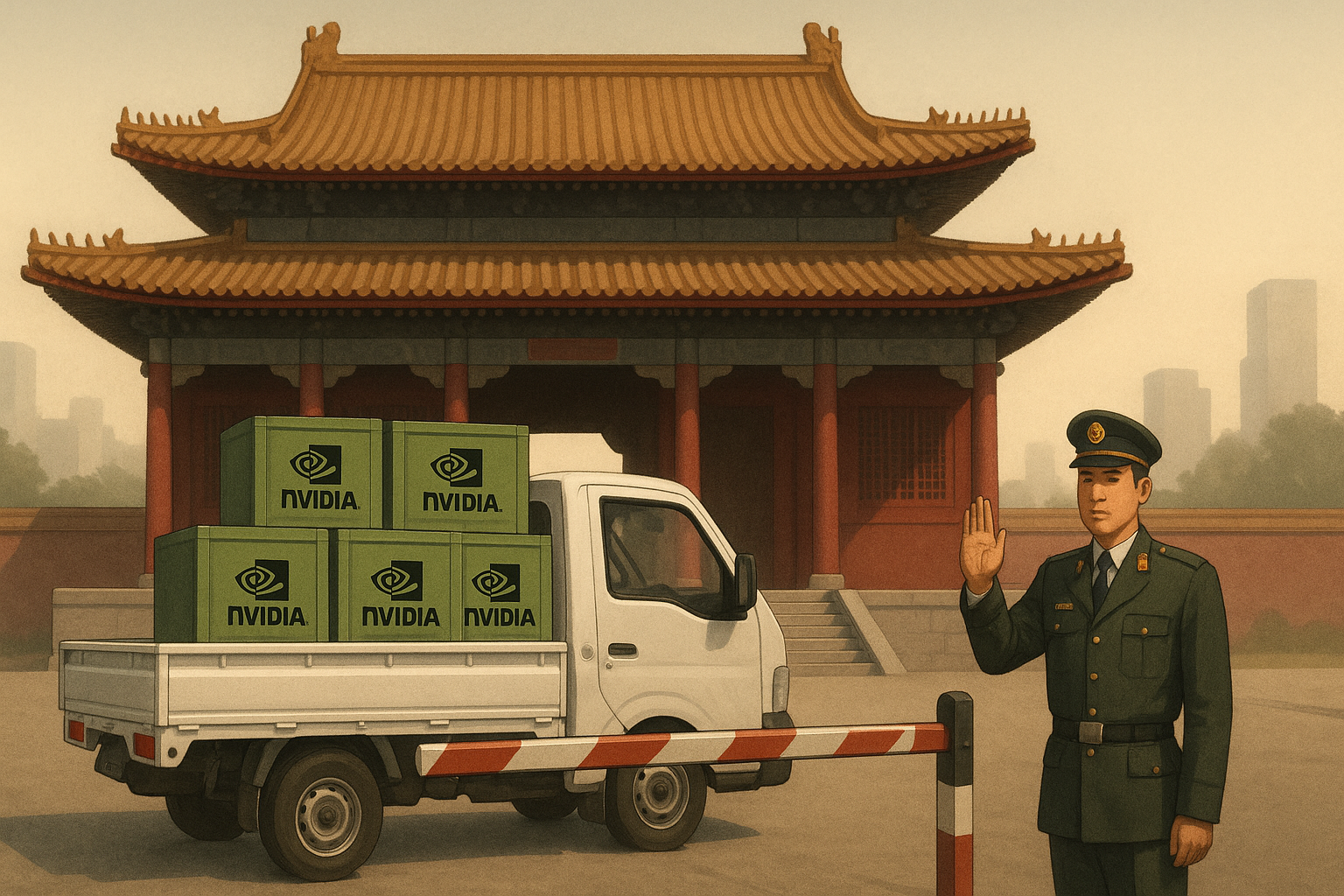Beijing is putting its foot down on Nvidia's AI chips — and this time, it's not Washington doing the blocking.
Chinese government agencies have ordered domestic companies to stop buying Nvidia's AI chips, according to a Financial Times report that adds yet another layer of complexity to the already tangled web of semiconductor politics between the world's economic superpowers.
The move represents a striking reversal in the usual narrative. For years, we've watched the US government restrict what high-powered chips American companies could sell to China. Now Beijing seems to be saying, "We don't want your watered-down tech anyway."
Here's the backstory: After Washington imposed export controls on cutting-edge chips, Nvidia (clever as they are) designed special China-compliant versions that met US regulatory requirements while still delivering decent AI performance. These chips became something of a lifeline for Chinese tech firms hungry for AI computing power.
So why would China cut off this supply now?
It's a classic case of short-term pain for long-term gain. Rather than letting domestic companies become dependent on deliberately handicapped foreign technology, Chinese authorities appear to be forcing a cold-turkey approach. The message is clear: Use homegrown alternatives or nothing at all.
For Nvidia, this could sting. Though CEO Jensen Huang has been downplaying the company's exposure to China in recent earnings calls (a bit too casually, if you ask me), the market still accounts for roughly 20-25% of their revenue. Not pocket change, even for a trillion-dollar company riding the AI wave.
The timing here is particularly telling. Chinese chip designers like Huawei have made significant strides with their Ascend 910B chip. Is it as good as Nvidia's best? Not yet. But the gap is narrowing — apparently enough for Beijing to feel confident in pushing its tech ecosystem toward self-reliance.
There's another angle that often gets overlooked in these discussions: data security. Chinese leadership has legitimate concerns about processing sensitive national data on American hardware. (And let's be honest, wouldn't US agencies feel the same way about critical systems running on Chinese chips?)
I've been tracking the fragmentation of the global tech ecosystem since the first Trump-era restrictions, and this move represents a significant acceleration of that trend. We're witnessing the creation of parallel technology universes, each with their own standards, supply chains, and champions.
The implications for the global AI chip market could be profound. Nvidia currently enjoys near-monopolistic dominance in AI model training, with profit margins that would make even luxury brands jealous. Any significant splintering of the global market threatens that position — not immediately, but eventually.
For Western tech executives trying to navigate China strategy... well, good luck with that. The days of treating China primarily as a growth market seem increasingly like ancient history. Today's reality is much messier: potential customers can become competitors overnight, while regulators on both sides keep moving the goalposts.
The fundamental tension won't resolve anytime soon. Tech companies operate globally by nature, while national security concerns remain stubbornly, well, national.
Meanwhile, I expect Jensen will keep touring the world in his iconic leather jacket, selling AI accelerators to whoever still has both permission and desire to buy them. The chip restriction chess game continues, with moves and countermoves growing increasingly sophisticated.
One thing's for certain — Nvidia's next earnings call just got a whole lot spicier.
